How Much Does A Smart Car Weigh – Details Described
By regular understanding, smart cars are cars that use the latest and most advanced technology and focus on efficiency. In the coming world, cars are thought to be uncontrolled, electric, and on-demand; cars that are being designed and built in accordance with those visions are known as smart cars.
Some technological gurus say that as we approach closer to the idea of an autonomous automobile by every design, we are making road driving safer. Since human mistakes cause almost 94 percent of all accidents to date, erasing that aspect will allow for much better and safer road travel due to smart cars.
Smart cars are usually small and compact in design; this is done in order to increase usage of space and thus promote efficiency in every way, even space.
Smart cars are usually one of a kind in appearance, they seem almost like cubical boxes on wheels, but with curves on the sides, this gives better stability. These were first engineered as small and fuel-efficient in order to counter the high fuel prices in the US markets during the 2008 financial crisis.
Smart Cars – Initial Years
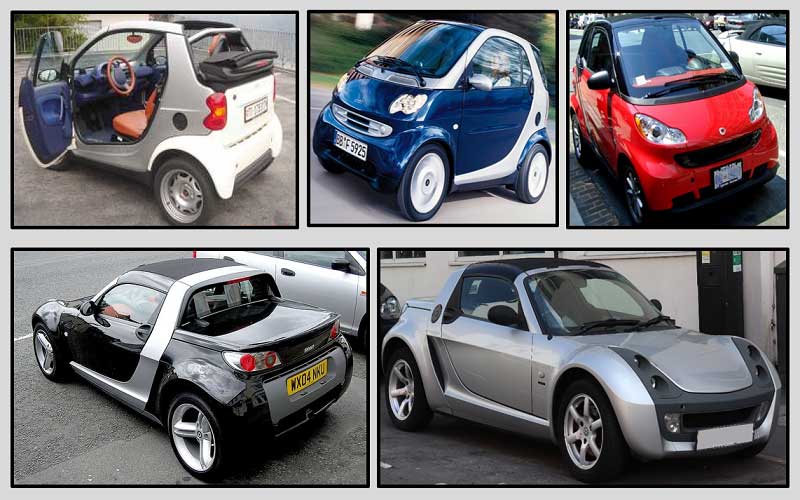
During the initial release of the smart cars, the US automakers could not make enough to match the supply demanded.
These cars further continued their appeal to people, and new generations throughout all demographics as awareness regarding issues continued to gain light by adding new technology in these cars.
As more technology companies emerged, they decided to continue innovation in these cars to make them even more efficient in the modern-day. In today’s world, as issues such as climate change and the effect that is polluting cars have on it comes to light, more people and inclined to prefer these smart cars.
The modern-day innovators cater these cars to people of the young generation mainly who are most to benefit from the use of these cars. Today different companies produce different variants of these cars that differ mainly by body shape, comfort features, and interior designs.
Furthermore, as competition amongst companies had increased due to demand, more investment is being made in its innovation, thus nearing the final goal of autonomous cars and better features.
Read Also: How to Use Seafoam
How Does a Smart Car Work?
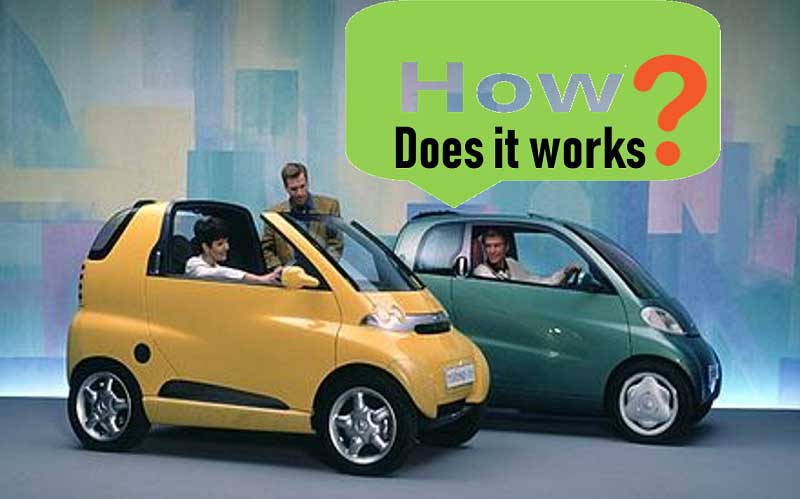
The lightweight car usually includes a three-cylinder engine, which allows it to go from 0 to 60 miles per hour in a matter of a few seconds.
Despite the incredible speed capability, the electronic speed limit kicks in at 80 miles per hour, ensuring the complete safety of a person.
There are numerous safety features, including airbags installed in both front seat areas and aluminum doors that ensure ease opening in cases of accidents and crashes.
Exchangeable body panels are unique features to the smart car; they are recycled and reusable, thus allowing the owner to change the color of the car when he chooses.
Comparison to regular gasoline cars
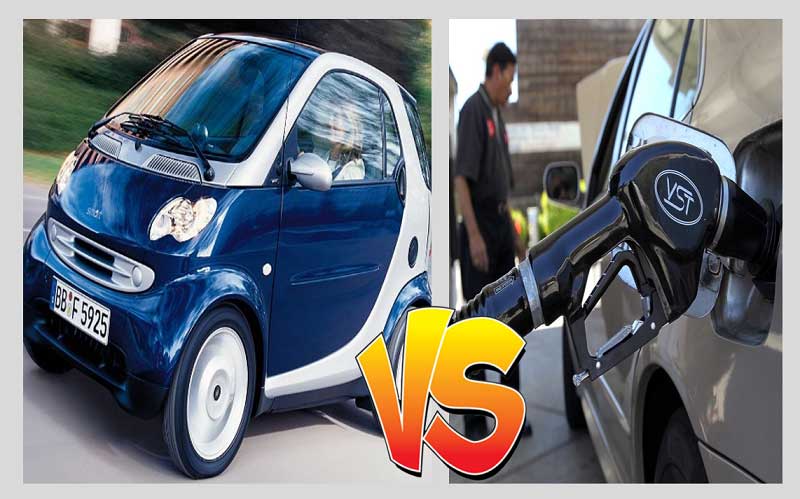
Multiple people chose smart cars when they compare them to regular cars; these reasons include fuel, the effect on the environment, lightweight, price and etc.
The average regular costs thousands of dollars annually in fuel costs, but with a smart car, that cost is eliminated by being electric rather than fuel dependent.
Since the fuel aspect is eliminated; thus, the main pollution aspect is also eliminated, allowing it to be much beneficial for the climate and ensuring positive technological advancement.
With multiple advantages over the regular car and not much of a price difference, the smart car surely seems like a much more advantageous option in comparison. The only down-side would be the size of the car is small and compact due to its size efficiency concept and inspiration.
Since the weight of smart cars is lower thus, they have a lesser towing capability as well but still possess basic towing needs and allows them to be fulfilled.
Read Also: How to Reset TPMS Warning Light at Home
The Weight of a Smart Car and Its Importance
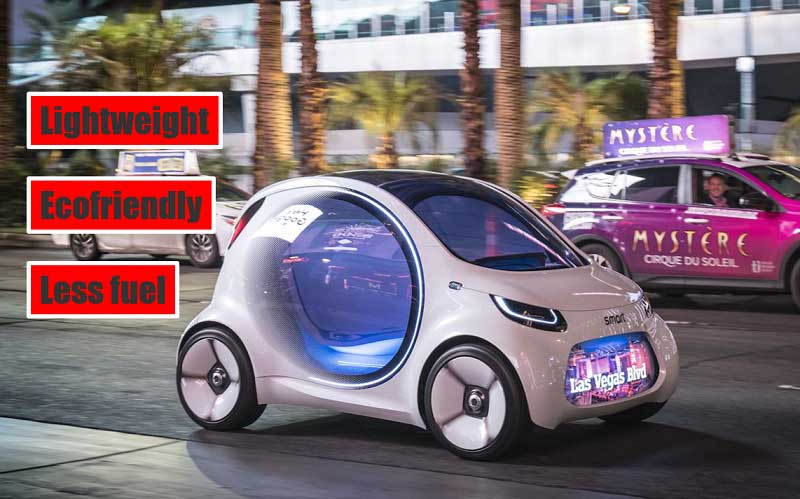
The main factor affecting the cost of a car is the gasoline used by it, and that main thing that influences it is the weight of the car. Simply put, the heavier the car, the more gasoline is required to move.
The average smart car weighs around 1550 pounds with a few models by different companies ranging a few pounds up and down. Modern-day latest generation variants of smart cars weigh about 1850 pounds, calculating on the option available and the soft top conversions.
In order to keep the weight low, these cars are usually designed as only two-seaters, with exceptions made as companies continue to innovate, but two-seaters remain the norm. A frequently used car weight allotting is the 50/50 model; this refers to the weight being evenly distributed to the back and forward of the car.
Smart cars have better weight distribution, and cars with good weight distribution are usually a lot more faster and thus better in performance.
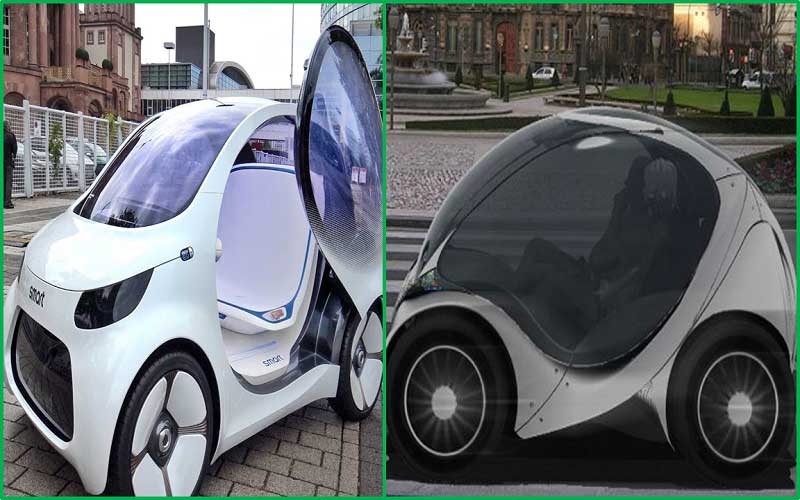
As in most regular cars, if weight is not correctly distributed, either front or back brakes will w off quicker and cause a disparity between them in terms of replacement.
This means one will be needed earlier replacement compared to the other, and once it is replaced, then the other one is old and not up to the par. The even distribution as in a smart car is incredibly crucial to the stability of the car; without the correct distribution, the weight, the controlling of the car could be calamitous.
The ideal weight allows more room for safety features in the car that make it better prepared than more traditional cars in case of accidents. The insides of the car are built with a Tridion steel shell that allows for protection from crashes on up to 70 miles per hour.
Most of the weight of a smart car is made up of the engine since not many other huge things are able to fit in the efficient design.
Read Also: Battery Terminal Corrosion
Frequently Asked Questions
Q1: Which part of the car is the heaviest?
In terms of smart car weight, the heaviest part is the engine, and the transmission of the car, many other components such as seats are lighter in specific.
Q2: Which is the heaviest car to ever be made?
To date, the heaviest car to be made is the Rolls Royce Phantom, clocking in at 6052 pounds, much more than the average smart car.
Q3: With the lightweight, how fast actually can the smart car go?
USA smart automaker claims that the 61-p engine can go from zero to 60 miles per hour in near to almost 15 seconds, the car remains stable due to weight allocation.
Q4: Should lightweight cars be considered safe?
Earlier when the Insurance Institute for Highway Safety (IIHS) conducted tests on the smart cars made by automaker USA, they were awarded the highest grade of A.
Q5: Are lightweight cars expensive to insure?
The simple answer is yes, the insurance rate of electric cars at times could be up to 21 percent higher than the rate of regular gasoline cars.
This means you can expect to pay an average of 3800 dollars for car insurance in a span of 5 years if you are an owner of a smart car.
Q6: Can a lightweight smart car be easily towed?
Since a smart car is lightweight and small, this thus makes it best-suited car for towing behind an RV or any vehicle.
Gas-powered cars made to be flat towed, in case of a smart car, it is intended to be towed behind a vehicle since they are made accordingly.
Q7: What is the towing limit of a smart car?
The towing limits seem about to be around 1600 pounds across most smart car variants. Irrelevant of the smart car weight allocations, always take good care of how you load and tow a trailer.
Q8: How far can you drive in a tank of gasoline in a smart car?
The less weight allows for smart cars to drive up to almost around 350 miles only on a tank of gasoline. The tank usually holds 8.7 gallons of gasoline; this includes a reserve of about 1.3 gallons.
Q9: What is the average miles per gallon on a smart car?
The average miles per gallon on a smart car is about 40.
Final Thoughts
In this article, I have completely analyzed the smart car in relation to its weight and how that affects every aspect of the car differently. It shows that smart cars are the future because they correlate to multiple features and benefits that the new coming generation wants.
It has been shown how important weight is for cars, and despite being small in size, the smart car can hold up very well in comparison. In a smart car, the weight is immensely important in order to get great gas mileage on a car and save money in terms of transportation.
Lastly, the great even balance of weight provides much-needed stability, making it a much overall better option than many others to take you from point A to B.
Share this content:

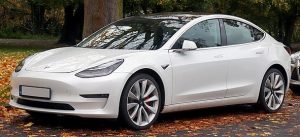




Post Comment